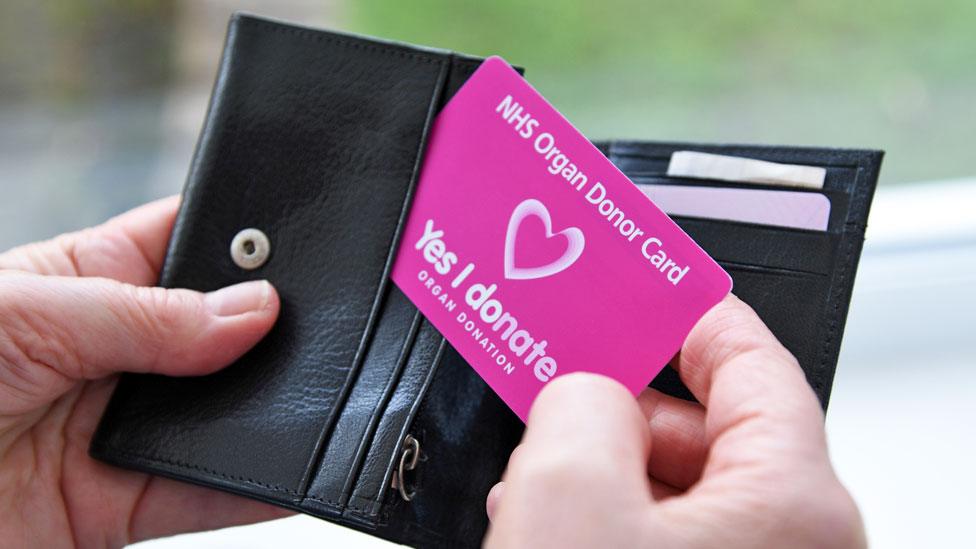Opt-out donation plan 'will not increase donors'
- Published
- comments
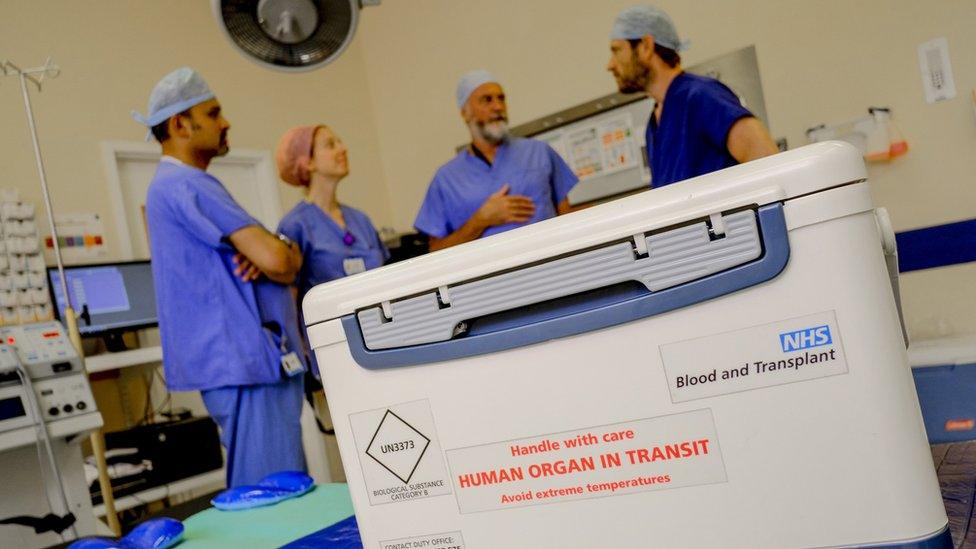
More than 5,000 people are currently on the waiting list for a transplant in England
An opt-out organ donation register in England may not increase the number of organs because grieving relatives could be less sure what their loved ones had wanted, a study suggests.
Under the opt-out system, planned to come in from 2020, consent is presumed unless family members decide otherwise.
But research by Queen Mary University London surveyed attitudes in several nations with varying donation policies.
NHS Blood and Transplant say the change would make families debate the subject.
And it said this would support an increase in donation.
The study, external was a psychology experiment involving a total of nearly 1,300 people from a number of different countries with different systems of organ donation, including the US, UK, Germany, Austria, Spain, France and Norway.
Participants were presented with a fictional scenario and asked to judge the likelihood that an individual's "true wish" was to actually donate their organs, given that they were registered to donate.
A donor's preference to donate was deemed to be stronger when they had chosen to opt in compared to when they were presumed to consent to donation, under an opt-out system.
What is an opt-out system?
It presumes that people agree to donate their organs so everyone is automatically registered as a donor.
If you do not want to donate, you must make that clear on the organ donation register.
In contrast, an opt-in system requires people to choose to be listed as a donor on the register.
Donation rates rose in Austria, Belgium and Singapore after presumed consent was introduced.
When will it come into being?
The government recently announced plans to introduce the system in England by 2020.
A similar opt-out system has been in place in Wales since 2015, although two years into the scheme the number of donors had not increased in the country.
Scotland plans to introduce a similar scheme and Northern Ireland has also expressed an interest.
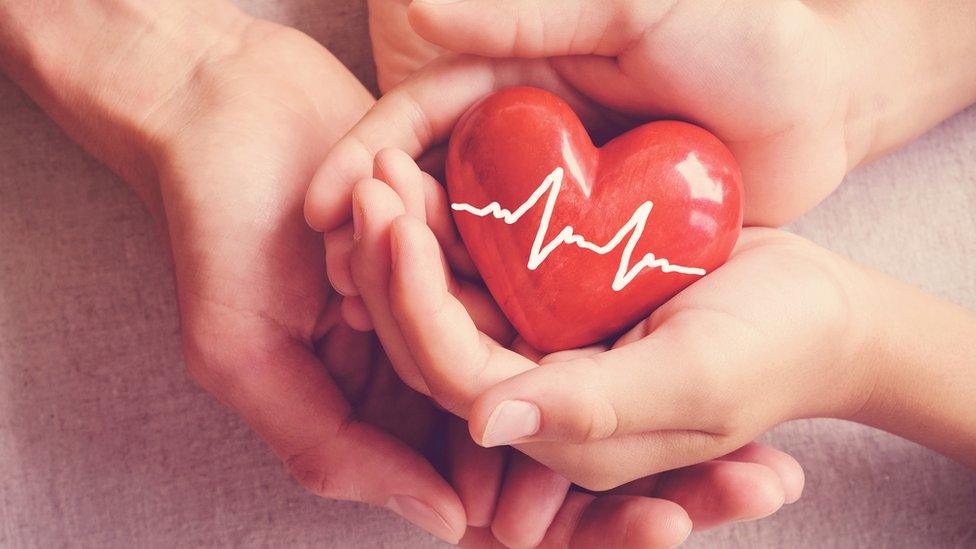
Can family members still have the final say?
Yes - opt-out and opt-in systems allow family members to have a veto and make the final decision for their deceased relative.
In the last five years, NHS figures show that the families of 505 registered donors refused donation.
NHSBT said this resulted in around 1,200 people missing out on potentially life-saving transplants.
Why might an opt-out system not increase donations?
It is the difference between a passive choice (being automatically opted in) rather than an active choice (deciding to actively opt in), the researchers say.
Also, people rarely communicate their wishes to their families on this subject and that leaves them in a quandary, and therefore more likely to say no to donation.
Lead author Dr Magda Osman, from Queen Mary University of London, said: "To help increase actual rates of organ donation, we need more transplant co-ordinators working with families to help them understand the issues before being faced with a monumental and distressing decision.
"We also need to offer people a way to indicate explicitly what they wish to do.
"This should involve an expressed statement of intention if their wish is to donate, or an expressed statement of intention if there is an objection to donate.
"This reduces the ambiguity in trying to infer what someone wanted to do when it comes to donating their organs."
What's the argument for the opt-out system?
Around eight in 10 people support organ donation but only around one-third of people have told their families they wish to donate their organs after they die.
In 2017, 411 people in the UK died before the right donor was found.
More than 5,000 people are currently on the transplant waiting list in England.
A spokesman from NHS Blood and Transplant spokesman said: "Under the new legislation, you would still be able to express a decision to opt into donation, and you would still be able to opt out.
"People who do not register a decision will be deemed to have given consent for donation."
- Published5 August 2018

- Published10 April 2018
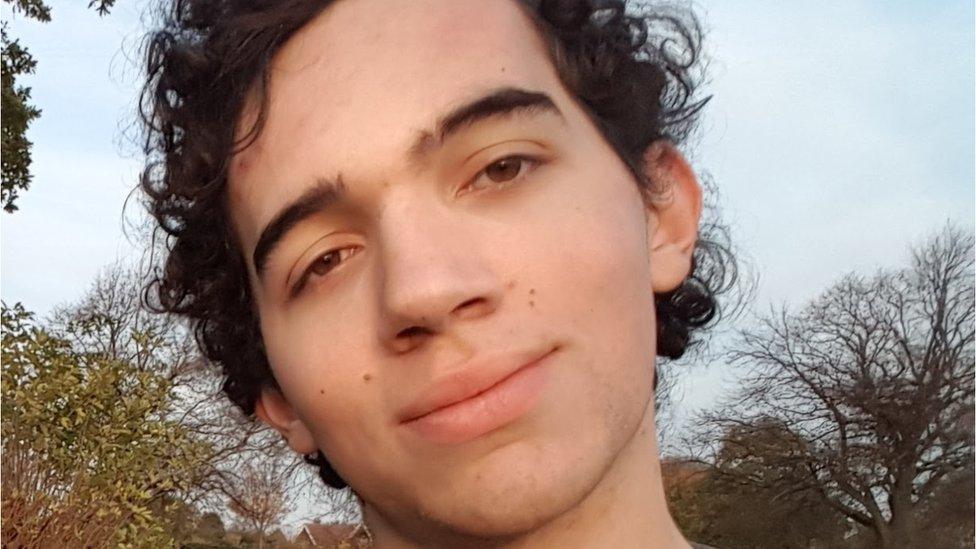
- Published4 December 2017
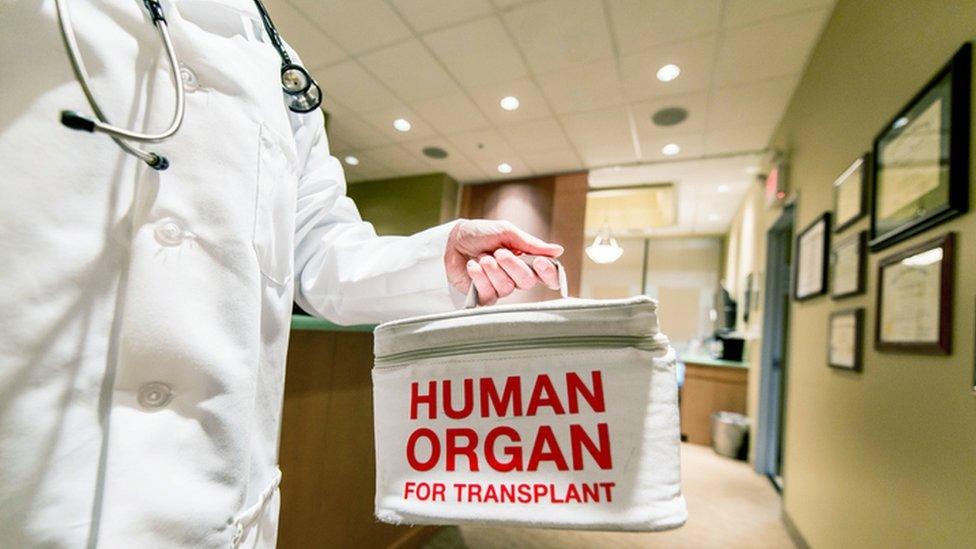
- Published12 December 2017
